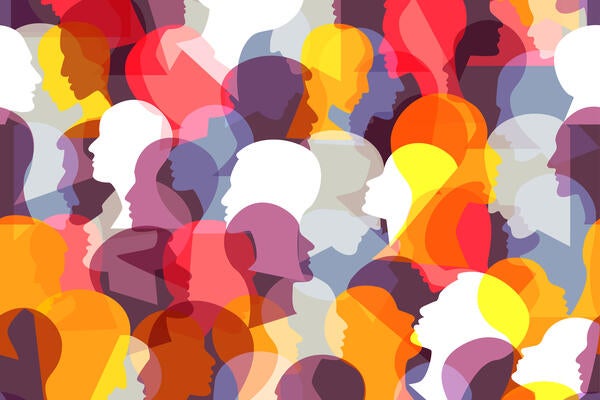
Q and A with the experts: How does self-esteem affect relationships?
Someone with low self-esteem might assume rejection or neglect, leading to conflict in the relationship

Someone with low self-esteem might assume rejection or neglect, leading to conflict in the relationship
By Media RelationsIn February, as some people's thoughts turn towards romance, what does it take to keep a relationship strong? Dr. Joanne Wood, distinguished professor emerita in Psychology, explains how one's self-esteem plays a role.
How does low self-esteem impact relationships?
Self-esteem can lead to a series of processes that affect relationships. People with high self-esteem assume that others like them and value them as much as they like themselves, whereas people with low self-esteem have doubts. People then carry these assumptions into their relationships.
For example, people with low self-esteem may be quick to assume that their partner has neglected or slighted them. They may feel hurt and withdraw or become angry and hostile. It's hard for their partner to not be hostile or angry in return, and a vicious cycle of conflict can begin.
In contrast, a person with high self-esteem is less likely to jump to the conclusion that their partner has devalued them, so this cycle does not start.
What are some of the other factors that impact relationships?
Researchers have found more than two dozen predictors of relationship quality, including age, education, poverty, and divorce laws. Self-esteem is not the only important personality trait. A person's characteristic level of negative emotions —sadness, anxiety, anger — influences the partner's happiness.
How can people improve their relationships?
It's very difficult for people to try to improve their self-esteem directly. For example, repeating positive self-statements can backfire, making people with low self-esteem feel worse. Instead, I'd advise people to become aware of how low self-esteem can lead them to see rejection where it does not exist, as well as how their behaviours can affect their partners when they feel hurt.
Dr Wood and collaborators' most recent publication, Self-esteem and romantic relationship quality (PDF), appeared in Nature Reviews Psychology.
This series is produced for the media, and its purpose is to share the expertise of UWaterloo researchers. To reach this researcher, please contact Media Relations.
RESOURCES AVAILABLE FOR SUPPORT
If you're a member of our University community who is being affected by low self-esteem, support is available:
Here 24/7 - 1-844-437-3247 (available for immediate support)
Grand River Hospital - 519-749-4300
St. Mary's Hospital - 519-744-3311
Good2Talk - 1-866-925-5454
Talk Suicide Canada – 1-833-456-4566 or by text 45645
Empower Me Toll-free 24/7: 1-833-628-5589

Read more
New Canada Research Chairs will tackle future-focused problems from social robots and intergroup attitudes to geochemistry and nanoscale devices

Read more
Twenty-six researchers receive federal funding to drive discovery, innovation and research infrastructure development

Getty Images / Kubkoo
Read more
Insights from investigation of decision-making among people in 12 countries could improve teamwork and cross-cultural relations
The University of Waterloo acknowledges that much of our work takes place on the traditional territory of the Neutral, Anishinaabeg, and Haudenosaunee peoples. Our main campus is situated on the Haldimand Tract, the land granted to the Six Nations that includes six miles on each side of the Grand River. Our active work toward reconciliation takes place across our campuses through research, learning, teaching, and community building, and is co-ordinated within the Office of Indigenous Relations.